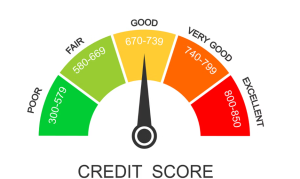Considerations Before Closing a Credit Card
3 min read
The decision to close a credit card is often made impulsively, without fully grasping the potential repercussions. This article delves into the multifaceted aspects of closing a credit card, exploring the hidden consequences, the factors to consider, and alternative strategies to preserve your financial well-being.
Understanding the Temptation: Closing a credit card can seem like a quick fix, especially if it’s a card with a high-interest rate, an annual fee, or one that you no longer use. However, the true impact of this decision extends beyond the immediate satisfaction of simplifying your wallet.
The Impact on Credit Utilization: One of the critical components of your credit score is credit utilization—the ratio of your credit card balances to your credit limits. Closing a credit card reduces your available credit, potentially increasing your credit utilization ratio. A higher ratio can negatively affect your credit score.
Length of Credit History Matters: The length of your credit history plays a significant role in your credit score. Closing an old credit card shortens your credit history, potentially lowering your credit score. It’s essential to consider the longevity of your credit accounts and the impact on your creditworthiness.
Influence on Credit Mix: Credit scoring models consider the variety of credit accounts you have, such as credit cards, installment loans, and mortgages. Closing a credit card may affect your credit mix, potentially impacting your credit score. Maintaining a diverse credit mix can be beneficial for your overall creditworthiness.
Potential FICO Score Impact: FICO, one of the widely used credit scoring models, factors in various elements when calculating your credit score. Closing a credit card account can influence these factors, potentially leading to a dip in your FICO score. Understanding the potential impact is crucial before making the decision.
Consider the Age of the Account: The age of your credit accounts contributes to your credit score. Closing an old credit card account can erase a positive credit history, especially if it’s one of your oldest accounts. Consider the age of the account and how its closure may affect your overall credit profile.
Evaluate the Rewards Program: If your credit card is part of a rewards program, closing it might result in the forfeiture of accumulated rewards. Before closing a card, assess the value of any rewards or benefits associated with the card and determine if it outweighs the potential drawbacks.
Alternatives to Closing a Card: Instead of closing a credit card, consider alternative strategies. If the primary concern is the annual fee, contact the card issuer to inquire about waiving the fee or explore the possibility of downgrading to a no-fee version of the card. Maintaining the account without the associated costs can be a win-win.
Strategic Use of Inactive Cards: If you have a credit card that you rarely use, keeping it open and making occasional small purchases can help maintain the account’s active status. This contributes positively to your credit history without the need for significant ongoing use.
Review Your Overall Financial Strategy: Before closing a credit card, take a holistic look at your overall financial strategy. Consider your short-term and long-term financial goals, your credit score, and the potential impact on your creditworthiness. Making decisions in alignment with your financial objectives ensures a more informed and beneficial outcome.
Closing a credit card is a decision that goes beyond simplifying your wallet. It has far-reaching implications on your credit score, credit history, and overall financial health. Before taking this step, carefully evaluate the potential consequences and consider alternative strategies to address any concerns. A thoughtful and informed approach ensures that your financial decisions align with your broader goals and contribute positively to your creditworthiness.





